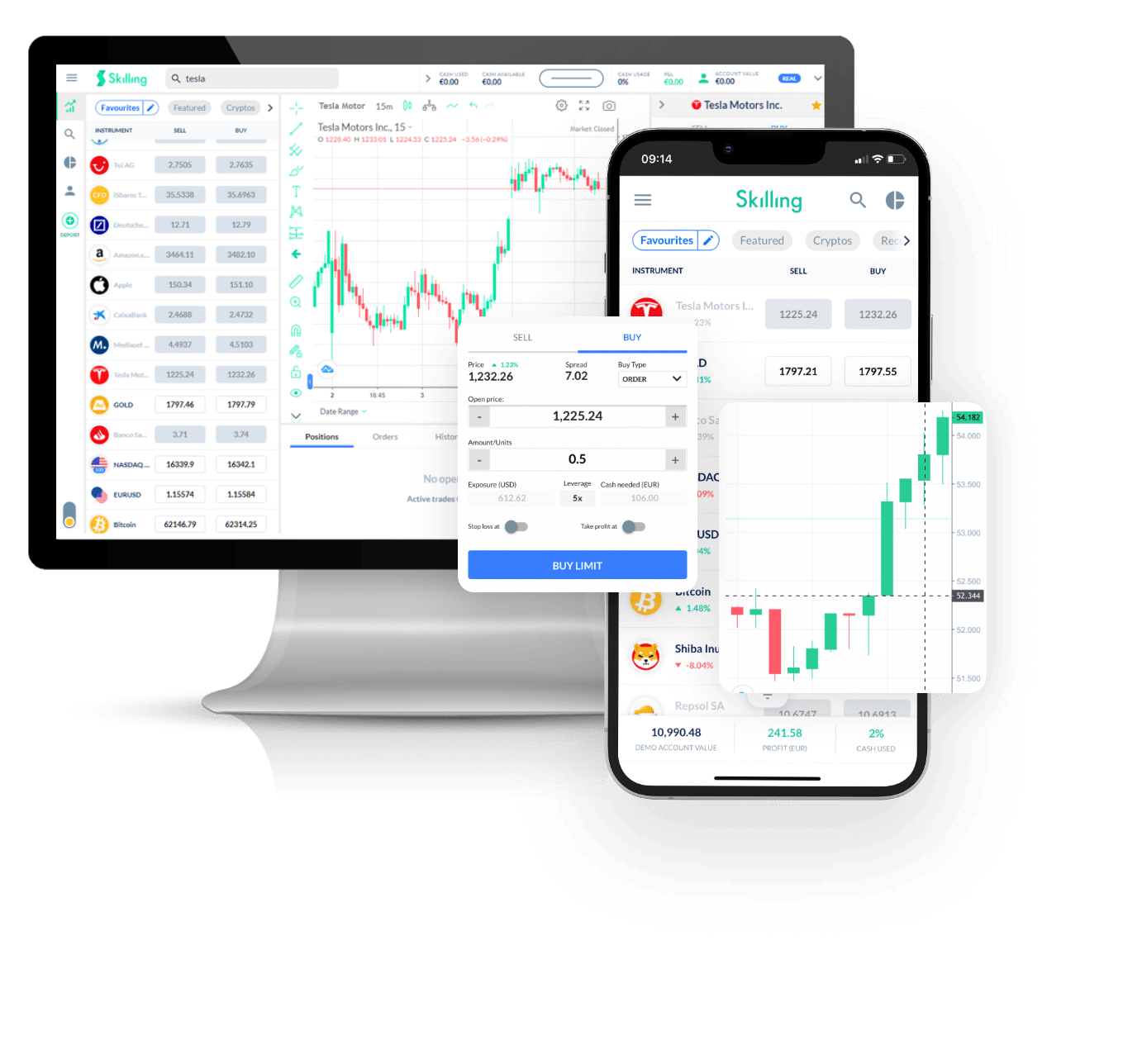Loading...
Airbus Stock (AIR.PA): Live Price Chart
[[ data.name ]]
[[ data.ticker ]]
[[ data.price ]] [[ data.change ]] ([[ data.changePercent ]]%)
Low: [[ data.low ]]
High: [[ data.high ]]
About
History
Differences between Investing vs Trading
About
History
Differences between Investing vs Trading
Airbus is a leading aircraft manufacturer with over 16,000 employees worldwide. The company was founded in 1970 by French industrialist Roger Béteille. Airbus went public in 1999 and is now majority-owned by the European Aeronautic Defence and Space Company (EADS).
In its early years, Airbus focused on developing and manufacturing commercial aircraft. Its first model, the A300, was launched in 1974 and quickly became a best-seller. Airbus has since expanded its product range to include wide-body jets such as the A330 and A340, as well as the smaller A320 family of single-aisle aircraft. In recent years, the company has also developed military aircraft such as the A400M Transport and the Eurofighter Typhoon.
The Airbus company has seen some ups and downs in its share price over the past few years. The highest price per share was in 2015, when it reached $103.4. The lowest price was in 2016, when it dipped to $52.2. The company is currently traded on the Frankfurt Stock Exchange under the ticker symbol AIR.
There are several competitors that could affect the share price of Airbus. These include Boeing, Lockheed Martin, and Northrop Grumman. Each of these companies has a significant presence in the aerospace and defence industry, and they are all major players in the market.
Investing in shares means that you will own a piece of the company and will be entitled to dividends if the company does well. However, you will also be exposed to stock price fluctuations - so if the share price falls, you could lose money.
Trading Airbus shares via CFDs means that you don't actually own the underlying asset, but you can still benefit from price movements. You can go long or short on CFDs, which gives you more flexibility than investing in shares alone. However, you will not be entitled to dividends and you will have to pay commission on your trades.
If you're looking for long-term growth potential and are willing to accept some short-term volatility, investing in shares could be the way to go. However, if you're looking to take advantage of short-term price movements or want more flexibility in your trading, CFDs could be a better option.
| Swap long | [[ data.swapLong ]] points |
|---|---|
| Swap short | [[ data.swapShort ]] points |
| Spread min | [[ data.stats.minSpread ]] |
| Spread avg | [[ data.stats.avgSpread ]] |
| Min contract size | [[ data.minVolume ]] |
| Min step size | [[ data.stepVolume ]] |
| Commission and Swap | Commission and Swap |
| Leverage | Leverage |
| Trading Hours | Trading Hours |
* The spreads provided are a reflection of the time-weighted average. Though Skilling attempts to provide competitive spreads during all trading hours, clients should note that these may vary and are susceptible to underlying market conditions. The above is provided for indicative purposes only. Clients are advised to check important news announcements on our Economic Calendar, which may result in the widening of spreads, amongst other instances.
The above spreads are applicable under normal trading conditions. Skilling has the right to amend the above spreads according to market conditions as per the 'Terms and Conditions'.

Trade [[data.name]] with Skilling
All Hassle-free, with flexible trade sizes and with zero commissions!*
- Trade 24/5
- Minimum margin requirements
- No commission, only spread
- Fractional shares available
- Easy to use platform
*Other fees may apply.
FAQs
Which are the competitors of Airbus shares?
+ -The Airbus Group, which includes the commercial aircraft business and the military defence business, competes with a number of other large aerospace companies. The main competitors for the commercial aircraft business are Boeing and Lockheed Martin, while the main competitor for the military defence business is Boeing. There are also a number of smaller regional jet manufacturers that compete with Airbus, such as Bombardier and Embraer.
Who owns most Airbus shares?
+ -
According to Airbus' website, the company's largest shareholder is the European Aeronautic Defense and Space Company (EADS), with a 29.92 percent stake. The next largest shareholders are KfW IPEX-Bank (11.01 percent), Crédit Agricole Indosuez (6.52 percent), BNP Paribas (5.44 percent), and Caisse des Dépôts et Consignations (4.84 percent). Together, these five shareholders own more than 57 percent of Airbus shares.
Other notable shareholders include the governments of France (3.17 percent) and Germany (3.00 percent), as well as investment firms such as Capital Research Global Investors (2.92 percent) and The Vanguard Group (2.17 percent).
Do Airbus shares pay dividends?
+ -Yes, Airbus shares pay dividends. The company has a long history of paying dividends, and its shares have consistently rewarded shareholders over the years. Airbus is a large and well-established company, and its dividend payments are very reliable. shareholders could expect to receive regular dividend payments from Airbus for many years to come.
Why Trade [[data.name]]
Make the most of price fluctuations - no matter what direction the price swings and without capital restrictions that come with buying the underlying asset.
CFDs
Equities
Capitalise on rising prices (go long)
Capitalise on falling prices (go short)
Trade with leverage
Hold larger positions than the cash you have at your disposal
Trade on volatility
No need to own the asset
No commissions
Just low spreads
Manage risk with in-platform tools
Ability to set take profit and stop loss levels

